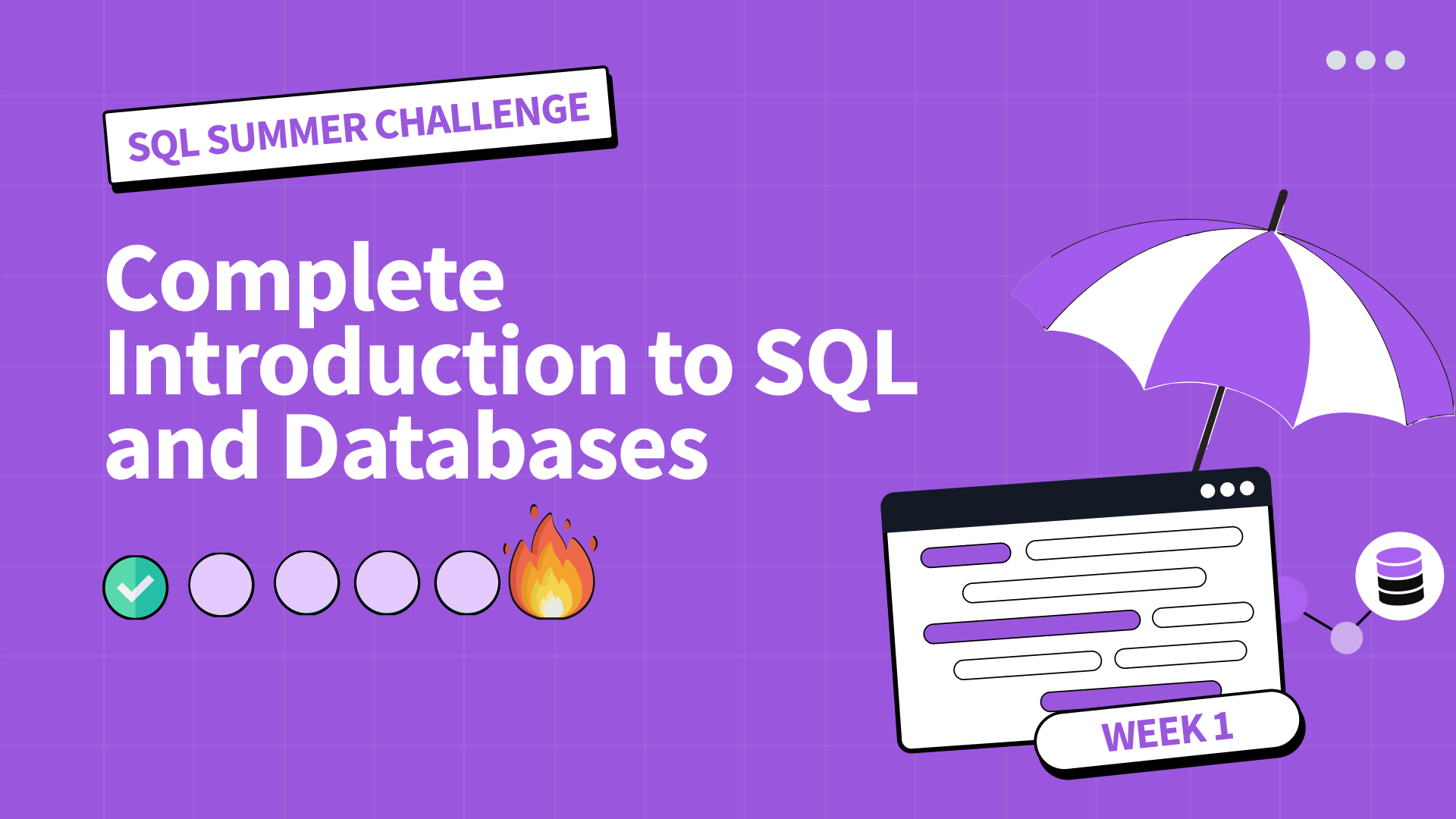Best ROI of 2026: Secure Unlimited Data Skills for Life at 57% Off.
The Dataquest Download
Level up your data and AI skills, one newsletter at a time.
Python or SQL: Which Should You Learn First?
Dear Dataquesters–
I’m Casey Bates, director of course development at Dataquest, and this week I want to talk to you about learning SQL. This is the first post in a multi-part series about SQL. In the upcoming newsletters, I’ll discuss a new SQL topic to give you some ideas about what to work on next.
When people ask me if they should learn Python or R first as an aspiring data professional, I always recommend starting with SQL instead. It might not be as flashy as the latest machine learning libraries, but SQL is the foundation that all data work is built on. I speak from experience–SQL was the first topic I taught as a data science instructor, even though my expertise was in R.
SQL is the quiet workhorse that runs everything in the data world, from small business databases to massive big tech applications. At Dataquest, we use SQL every single day to monitor the quality of our courses and quickly diagnose and fix any issues that arise. Having SQL skills prepares you to take on any data challenge that comes your way, big or small.
In my years working with data, I’ve collaborated with dozens of analysts, scientists and engineers. And you know what skill they all had in common? SQL. When it comes to querying databases, sharing analyses with your team, and constructing data pipelines, SQL is the universal language that connects data professionals.
I still remember how overwhelming it felt when I first started learning SQL. It was like staring out at a vast ocean of data without a clear starting point. But as I began writing queries and working with real datasets, I quickly realized just how powerful SQL is for asking the right questions and surfacing actionable insights. Knowing SQL has helped me make a real difference in my work by enabling data-driven decisions that keep our team focused.
Learning SQL from the ground up gives you a solid understanding of databases, tables, queries, joins, and more–concepts you’ll use again and again as you progress in your data career. It’s a skill that will serve you well no matter what domain or industry you end up working in. For an in-depth exploration of why and how to learn SQL, check out this insightful post.
Now, here’s the fun part. I’m challenging you to join Dataquest’s 6-week SQL summer challenge. Each week, we’ll explore key concepts together, starting from the basics in Week 1 with our Introduction to SQL and Databases.
Bonus: To kickstart this challenge, we’ve made the first course of the SQL Fundamentals free for all learners.
Happy learning,
Casey
Week 1 SQL Summer Challenge

|
In the Introduction to SQL and Databases course, you’ll learn to write SQL code and perform fundamental data tasks—no coding experience needed. This self-paced course consists of 7 lessons and takes only 5 hours to complete. By the end, you’ll have learned:
At Dataquest, we believe in learning by doing. We strongly encourage you to complete the guided project and share it in the Community. This provides valuable peer feedback, helping you refine your projects to look more advanced and professional. All the best! |
What We're Reading
📖 What Should an AI Personality Be
Explore Anthropic’s Claude Character AI, designed for safe and engaging interactions. Learn how this AI aims to balance safety, helpfulness, and honesty in various applications. Read more
📖 How I Automated My Life
Explore practical Python scripts to automate everyday tasks, from organizing files to fetching weather forecasts, enhancing productivity and simplifying workflows. Read more
📖 AI Advancements: A Midyear Review
A summary of the latest AI advancements over the past year, written by Professor Mollick of the University of Pennsylvania. Read more
What's new
Give 20% Get $20
Now is the perfect time to share Dataquest with a friend. Gift a 20% discount, and for every friend who subscribes, earn a $20 bonus. Use your bonuses for digital gift cards, prepaid cards, or donate to charity. Your choice! Click here
Community highlights
Project Spotlight
Sharing and reviewing others’ projects is one of the best things you can do to sharpen your skills. Twice a month we will share a project from the community. The top pick wins a $20 gift card!
This edition, we spotlight Josiah‘s project, Detect Pneumonia with CNNs and Transfer Learning. In this end-to-end machine learning project, Josiah analyzed lung X-ray images to diagnose pneumonia. The project stands out for its compelling narrative, informative plots, and clear, efficient documentation. Despite its complexity, Josiah’s work is remarkably easy to follow and serves as an excellent reference for anyone looking to use TensorFlow.
|
Want your project in the spotlight? Share it in the community. |
|
Project Tip of the Week Q: What advice would you give to someone starting a project? Decide on a topic that resonates with you, then decide on the content/details of what you want to do, how you want to do it, and how you are going to present it. I normally use the approach of who, what, where, why, when, and how for any project or contract.
Liana Ahrens Teixeira Financial Planner & Business Owner |
High-fives from Vik, Celeste, Casey, Anna P, Anna S, Anishta, Bruno, Elena, Mike, Daniel, and Brayan.